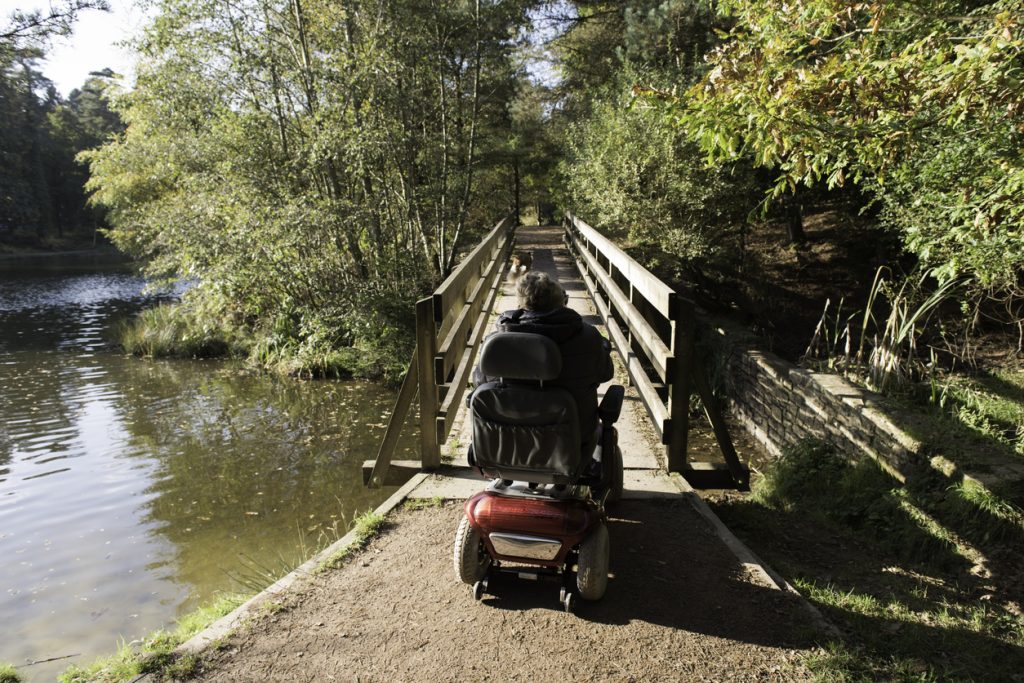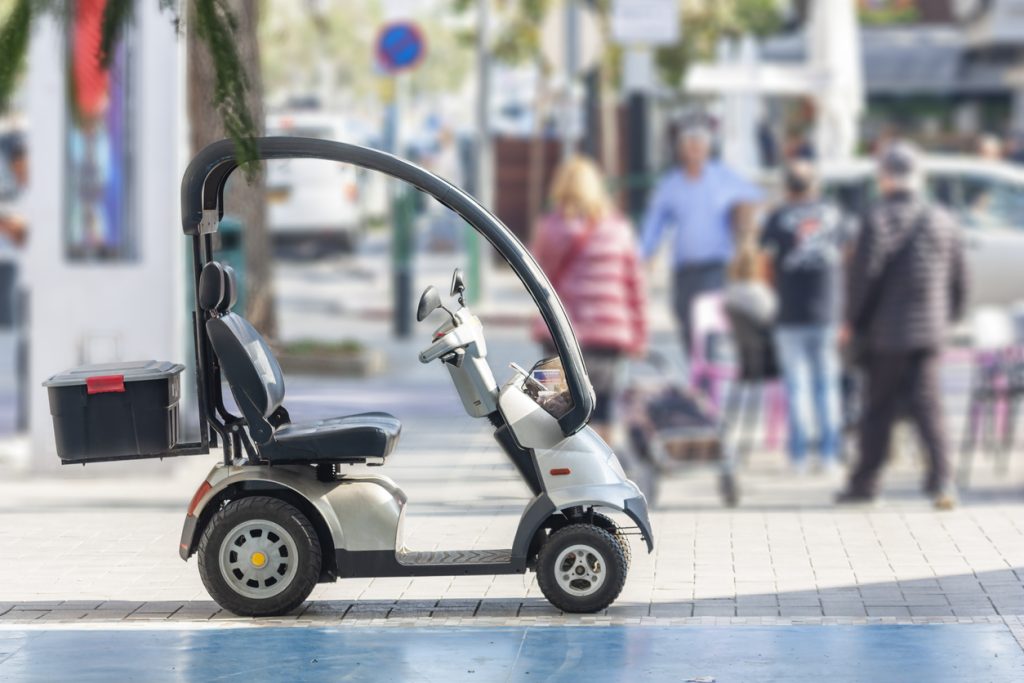These days, there are many different types of mobility scooter on the market, and each one is aimed towards people with different needs.
To find the right scooter for you, you need to know what you are looking for and how to find the scooter best suited to your needs.
There are a range of factors to consider when buying the right scooter for you, from price to intended use. Below, we’ve covered how to find the best mobility scooter for you.
Mobility Scooter Types
First things first: let’s take a look at the different types of mobility scooter you can get, and why each one is made slightly differently.
Class 2 Mobility Scooter
Class 2 mobility scooters are not suitable for use on the road, other than if there is no pavement available. However, this does mean that this type of scooter is more lightweight, and can often come in a foldable design to be easily stowed on public transport or in the boot of a car.
Types of class 2 mobility scooters include:
- Powered Wheelchairs
- Folding scooters (typically weighing around 25kg)
- Mid-weight scooters (typically around 50kg, with more power than a folding scooter)
Class 3 Mobility Scooter
Class 3 mobility scooters are suitable for use on the road, and as such, they need to meet certain criteria. You will also need to register your mobility scooter if it is a class 3 model.
This type of mobility scooter is more powerful and has a longer range than class 2 types, and will also include features such as:
- Front and rear lights and indicators
- An audible horn
- A rear view mirror
- A maximum unladen weight of 150kg
Class 3 mobility scooters have a speed limit of 8 mph, with a speed limiting device to 4 mph on pavements.
If you need your mobility scooter to travel longer distances that will involve road use, you will need to look for a class 3 mobility scooter. If, however, you only intend to use your mobility scooter for shorter trips (such as to the shops) which do not involve road use, a more lightweight class 2 mobility scooter may be more suitable for you.
Other Questions to Ask
- Where do you want to use your mobility scooter?
- If you are going to be using your scooter outdoors, is it level or rough ground? Are dropped kerbs available?
- Do you need to get your mobility scooter in a car?
- Where will you store your scooter? Can it also be charged there?
- Are you able to safely use the scooter?
- Do you need an additional warranty, insurance, and a service contract?
Training for Mobility Scooters
When you purchase your mobility scooter, the mobility scooter expert will be able to provide you with all the information and advice you need on safely driving your scooter, as well as things such as maintenance, charging, and safe storage.
You could also ask them to accompany you home to show you how to use your mobility scooter both indoors and outdoors and ensure you get the best use out of your new scooter possible.
Charging & Storing Your Scooter
You will need to make sure you have a suitable place to store your scooter overnight, preferably with a powerpoint so you can charge it at the same time. Your storage space should:
- Be indoors
- Be cool, but not too cold
- Easy to get your mobility scooter in and out of (no lifting!)
- Near a power point
Insuring Your Scooter
Cover your investment with a mobility scooter insurance policy, and also protect yourself against accidental damage and third party liability.
Surewise.com have partnered with hundreds of mobility scooter shops around the UK to ensure we can provide affordable, comprehensive insurance that provides cover for:
- New and second-hand scooters
- Recovery assistant 24/7
- Puncture care
- Personal accident
- Accidental damage
- Third party liability
- Theft
- & much more
Find out more about mobility scooter insurance and find an affordable quote to cover yourself when using your mobility scooter today.
Buying Your Scooter
With so many mobility scooters available, one of the best ways of getting the right mobility scooter for you is to go into your look mobility shop and talk with one of the experts in the shop.
They’ll be able to listen to your needs and your living situation, and best advise you on the right model for you. Remember to find a reputable supplier to visit, too: you won’t just be buying your scooter as a one-off investment, but will want to be with a legitimate and professional shop when your mobility scooter needs servicing later down the line.






